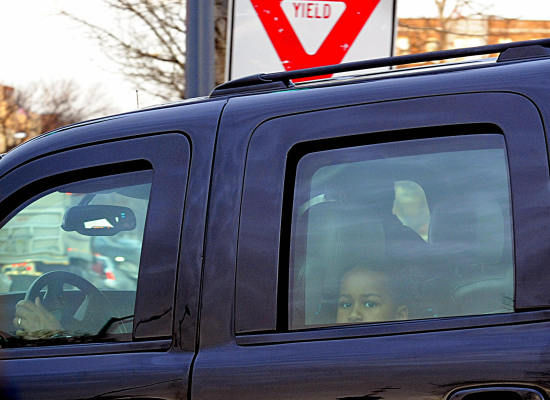This photo of the Obama girls being escorted to their first day of school by the Secret Service
brought to mind a previous instance of the armed federal troops escorting a black child to high school.
Quite a juxtaposition.

The Little Rock Nine 1957. I believe this photo is of the Arkansas
guard preventing them from attending. The 101st Airborn would
later be called on to enforce the integration of Little Rock High.
Elizabeth Eckford Today

